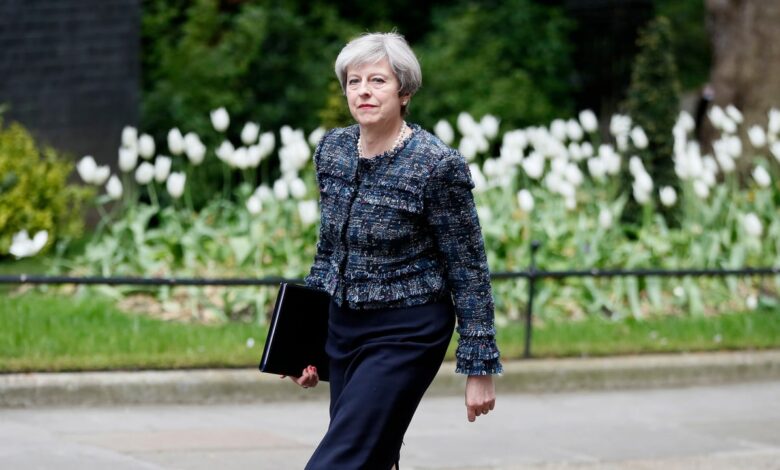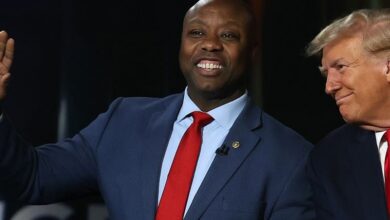A brief history of one-nation Conservatism

By BAGEHOT
I HEREBY predict that one of the great themes of British politics in the next few years will be “one-nation conservatism”. The Conservatives are currently running a presidential-style election campaign built around Theresa May and designed to hammer home the message that voters are not just voting for their local MPs on June 8th, but also deciding whether to put Mrs May or Labour’s Jeremy Corbyn in Downing Street.
But there are limits to this highly personal approach: the British political system is not a presidential one, Mrs May is proud of being a Conservative (indeed she famously told George Osborne that he ought to try to get to know the Conservative Party), and parliamentary parties need a guiding philosophy in order to flourish. After the election Mrs May will increasingly present herself as a champion of a new brand of one-nation Toryism: a brand of Conservatism that tries to unite the British people as a whole into a single political community while at the same time doing battle with the “Brussels bureaucrats” who want to do Britain down.
For years one-nation Toryism has been a code word for left-wing Toryism, which is to say anti-Thatcherite or bleeding heart Toryism. Mrs May’s one-nation Toryism will be both left-wing and right-wing. It will be left-wing in the sense that it will offer more for working-class voters who felt left behind by the shiny economy of the Blair-Cameron years. In particular, it will also countenance much more intervention in the economy than the Thatcherites ever did. At the same time it will be right-wing in the sense that, as the Brexit negotiations intensify, it will demonise British cosmopolitans who identify more firmly with “foreigners” than “ordinary Britons” while at the same time finding common cause with nationalists abroad. (I have noticed a striking fondness among Tories for Charles de Gaulle, with his support for a “Europe of nation states” and his romanticism about “la France profonde”.)
The new one-nation Toryism will have a rich but also contradictory tradition of Conservative thought to draw upon. Conservatives have talked about “one-nation conservatism” since Benjamin Disraeli declared in 1837 that “the Tory Party, unless it is a national party, is nothing”. But the meaning of one nation conservatism has changed confusingly over the years. Simon Green, a professor of history at Leeds University who has agreed to act as official historical advisor to Bagehot’s notebook, points out that one-nation conservatism combines two very different ideas—one about the unity of the people and the second is about the unity of the Kingdom (the Wikipedia entry on one-nation Conservatism entirely ignores the second meaning). He also argues that the content of the first of these ideas has changed with Britain’s evolving class structure.
Disraeli’s one nation Conservatism was about the responsibilities of the “classes” to the “masses”—a responsibility that he explored in his 1842 novel “Sybil—or Two Nations”. Disraeli’s great fear was that industrialisation was dividing the country into two nations:
Two nations; between whom there is no intercourse and no sympathy; who are as ignorant of each other’s habits, thoughts and feelings as if they were…inhabitants of different planets; who are formed by a different breeding, are fed by a different food, are ordered by different manners, and are not governed by the same laws…THE RICH AND THE POOR
His self-proclaimed mission was to unite these two nations behind the benevolent leadership of the Conservative Party.
Disraeli was not quite as successful in transforming this idea into a governing philosophy as some of his later acolytes have imagined: his one long spell in office, from 1874-1880, was the result of Liberal divisions over licensing alcohol rather than the appeal of Conservatism. The high Victorian era was the age of Gladstone rather than Disraeli. Lord Salisbury enjoyed more success by changing the meaning of “one-nation Conservatism”—from uniting the classes to uniting the Kingdom. For the last 20 years of the 19th century and the first 20 years of the 20th the focus of one-nation Toryism was keeping the United Kingdom in one piece by subduing or co-opting the forces of Scottish and Irish nationalism. The Conservative Party thus transformed itself into the Conservative and Unionist Party (and, from 1911 to 1965, usually fought elections in Scotland purely as the Unionist Party.)
The 1920s saw Tories once more focusing on Disraeli’s question of class rather than Salisbury’s question of the Kingdom, but this time they gave a very different answer. The solution to the problem of class was no longer to emphasise the duties of the rich to the poor. It was to emphasise what all English people had in common as English people (the term “English” was regularly used at the time to describe citizens of the United Kingdom). Stanley Baldwin, who was prime minister three times between the wars, expressed the point well in “On England” (1926): the Conservative Party stood for the “real England” of voluntary organisations and Christian patriotism, of little platoons and big national causes, he argued, while the Labour Party stood for an alien England of class divisions and over-mighty trade unions. (It is worth noting here that, as the son of a Bewdley-based iron master, Baldwin hails from the same corner of the country as Mrs May’s co-chief of staff, Nick Timothy.)
Perhaps the greatest breakthrough in redefining Conservatism, however, was the invention of the idea of “property-owing democracy” by Noel Skelton, a Scottish Unionist, in 1924. Disraeli had thought in terms of the duties of the rich towards the poor. Skelton thought in terms of giving everybody a stake in the country through the ownership of property. Leading Tory reformers quickly picked up on the idea of a property-owning democracy: Robert Boothby and Harold Macmillan praised the idea in their 1927 pamphlet, “Industry and the State”.
From the 1940s onwards R.A. Butler reinvented one-nation Toryism for the age of the welfare state. Some Tories such as Winston Churchill saw the welfare state as an enemy to be resisted—indeed after the war Churchill was fond of brandishing Frederick Hayek’s “Road to Serfdom” as a warning against any more social spending. Butler realised that this die-hard attitude would bring disaster and argued that the Tories would be better off countering socialist do-goodery with a new form of Conservative paternalism. His greatest achievement was, as the architect of post-war education policy, to place “opportunity”, as embodied in grammar schools, rather than “equality”, as embodied in comprehensives, at the heart of the new state machinery.
Margaret Thatcher reinterpreted “one-nation Conservatism” once again, demonising Butler’s one-nation welfarism as an excuse for giving in—that is conceding too much power to trade unionists, civil servants and other agents of decline—and instead resurrecting the old idea of a property-owning democracy. She believed that selling off council houses and nationalised industries would produce the property-owning democracy of which the young Macmillan could only dream (the old Macmillan accused her of “selling off the family silver”). Mrs Thatcher certainly succeeded in transforming the country beyond recognition and turning millions of people into property owners. But she is nevertheless remembered as a divisive figure—a “bloody difficult woman” who split opinion, did battle with the trade unions, alienated Scotland and Wales and made Billy Elliot’s life a misery.
Since Margaret Thatcher’s fall in 1990 “one-nation Conservatism” has been a code-word for trying to soften Mrs Thatcher’s legacy. John Major championed the idea of a “classless society” but was hampered by Mrs Thatcher’s sniping from the sidelines and then broken by the exchange-rate mechanism debacle. David Cameron was more successful in escaping her legacy. He detoxified the Tory Party by his “hug a husky” strategy of embracing gay rights and promoting ethnic minorities and gays. He also mounted a successful “better together” campaign to preserve the Union. But Mr Cameron was nevertheless more concerned with winning back middle-class voters who had abandoned the Conservative Party for New Labour than he was with reaching working-class voters.
Mrs May has more of a chance of making a reality of the “one nation” slogan than any of her recent predecessors. This is partly because of who she is. Margaret Thatcher was an embodiment of Southern English triumphalism. David Cameron is a silver-spoon-in-the-mouth Etonian—the sort of person who appeals more to Oxford scouts, who enjoy tugging the forelock to “proper” gentlemen, than to regular Brits. Mrs May is closest in spirit to John Major but is the offspring of a vicar rather than a circus performer. Above all it is because of circumstances. Globalisation and technological disruption have created a demand for community while high levels of immigration have put the question of national identity back at the heart of politics. Jeremy Corbyn’s hard-left Labour Party has shaken traditional working class voters free from their traditional loyalties. The combination of the rise of the Scottish Nationalist Party north of the border and the collapse of the Labour Party has turned the Conservatives back into the unionist party. And the toxic struggle with Brussels over Brexit will inevitably polarise opinion along nationalist lines. Confronted by the likes of Jean-Claude Junker, who capped his leaking of the contents of a private dinner with announcing that “English” is becoming an irrelevant language in Europe, all but the most hard-core “remainers” will find themselves tempted to do what one-nation Tories have always wanted—and forget about the distinction between the interests of the Conservative Party and the interests of the country.


